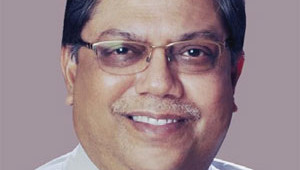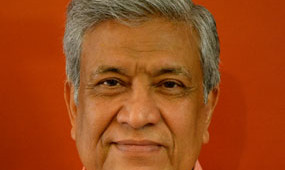What are the key thoughts of your book ‘Leadership Assessment for Talent Development’?
First of all, the world is changing fast – especially society, communications and technology- across the globe. Yet our default brain – which each baby is born with – has not changed since stone-age man at least 250,000 years ago. Little has been achieved in practical terms to identify how leaders need to lead differently in this new world and how individuals need to be developed to become those leaders of the future. “Leadership Assessment for Talent Development” provides a very practical way forward.
The status quo is that many leaders get to the top because they are good at getting to the top, not because they are good when they get there. We need to change this.
For the sustainable success of organizations in this new ever-changing world we need leaders to be developed who put first the true stakeholders of their organizations (customers, employees, suppliers, the community, the planet, and yes, even the shareholders), rather than putting first personal reward (usually money), personal power for control and personal prestige (including fame and celebrity status).
My co-editor Tony Wall, introduces the book by asking why so much goes wrong in the world and suggests it is because we, the human race, constantly strive for personal gain over all else. To respond to this he points to the book’s “3 jewels in the crown”.
The first jewel is transpersonal leadership; enabling others to gain, rather than strive for own personal gain – and doing so in a way that balances short- and long-term outcomes. The second jewel is talent development; equipping people with the skills and knowledge they need today and tomorrow – and – to be agile in the change. And the final jewel is assessment: the gauge of knowing where we are up to and our compass towards where we want to be.
From years of research analyzing the data of the LEIPA1 360o assessment tool, together with interviewing the facilitators who provide coaching feedback, we have identified “empathy”, “developing others” and “conflict management” as the three key development needs of leaders. The research shows that just two or three granular behaviors are usually inhibiting leaders from performing at a much higher level and to overcome these has a major positive impact. The book also identifies the most common hidden strengths and blind spots with some surprising results.
Other key thoughts in the book include:
1. Feedback is very important but it must be done in a spirit to authentically help people learn and grow.
2. We believe coaching is very important but it is often done by unqualified people for the wrong reasons. For leadership development it is best as part of an integrated development programme.
3. Learning is best done in the workplace, not in the classroom, but in a structured way. People learn best by having insights and by doing. A blended approach of a range of types of face-to-face and remote interventions.
4. Leaders get great learning benefit and enjoyment by working with peers at a deep facilitated level.
5. Storytelling skills are vital for expressing the vision, increasing engagement and improving morale.
6. It is possible and important to measure the results from learning and development investments. Investment in development needs to be measured as a return on investment to ensure the right kind of training is provided.
What are the trends in the war for talent in developed and emerging markets?
The “War for Talent”, originally coined by McKinsey in 1997 implied at the time that there were not enough talented people to go round. The reality is that there is not enough experienced and proven talent to go around. Every organization has much more talent that it will ever realize. Often it just needs to be identified and developed.
Many argue that it is cheaper to buy in ready-made talent than to develop their own because once they are developed they will leave. However, research proves that the main reason people leave is because they stop learning. The best companies put a great emphasis on developing their own people and promoting from within.
As for trends, they are changing. During the last few years of financial chaos in the developed markets, many companies have strived to keep their talent knowing they will be difficult to replace when things get better. Likewise, talent has tended to stay put in an uncertain world. This is likely to change as the developed world gradually moves away from austerity. Talent will get bolder about looking for better alternatives particularly if they don’t feel they are being developed and engaged where they are. But the world will continue to pay ridiculously high levels for so called “top” leaders – mistakenly in my view as so often a leader who has succeeded in one organizational context will not succeed in the next.
In the emerging markets, organizations are realizing more and more the need to develop their own people as their talent of the future but often the type of development required is misconstrued (as in developed markets!). The focus continues to be just on business skills rather than behaviors which are more important in developing leaders. I am no expert in such trends in the emerging markets but I do believe there will be less loss of talent to the developed world as they come to a greater equilibrium in economic terms. My advice: identify and develop talent with the focus first on behaviors and values and then provide them with the business skills.
How can leaders get trained so that they become better talent managers and developers?
Too often development is left to the Human Resource function. They have a very important role to play but leaders must be engaged themselves. As our book explains, “developing others” is the second most important development need of leaders. This is startling but most leaders don’t see it as their role. They must take a personal interest, especially in mentoring their direct reports instead of just signing off approval to send them away on a course. In my view, developing their own emotional intelligence, bringing their values to full consciousness in everything they do and receiving profession training in how to mentor effectively are necessities for a leader to be able to develop talent to its true potential.
What is your view on talent management in the Indian context?
In general, and I can always think of exceptions, my own experience suggests there is a good awareness of the need for talent management within HR functions of large companies but they lack the teeth to implement. There is also some awareness from some senior leaders but in general they do not listen sufficiently to the HR experts and therefore turnover of talent is higher than it needs to be.
As I have written elsewhere there tends to be a lack of emotional awareness amongst leaders (not just in India by the way!) and as such they just don’t understand the drivers of true talent. As long as people feel they are being treated fairly, talent with good values (the type you want to keep) are motivated much more by continuing to learn, by being truly valued and my doing a valuable and worthwhile job, than by financial reward.
Leadership across the world is getting younger. How difficult are the challenges in managing talent in their organizations?
First, I am not so sure leadership is getting younger overall although there are many companies associated with social media and digital technology industries where the leaders are very young! Personally, I think age is over-rated. On balance I prefer to work with young leaders because they are more attuned to the reality of society in their generation, more flexible, less resistant to change and as a generation more comfortable with emotional awareness/ intelligence. Also, amongst the young there are many more women leaders and that can only be a good thing in terms of talent development. The key to young leaders being successful in a sustainable way is to have the humility to accept they don’t have the experience from which wisdom often comes, and to seek out that wisdom from others, including mentors.
Young leadership can inhibit the upward career development of in-house talent but if the culture is right, and the talent is the right kind, they will be after job satisfaction and making a difference before promotion as such. And great companies help good people to leave if they can’t help them realize their dreams. At least that way they will always talk positively about the organization they leave and possibly be a good client of the future. If we look at some of the recent gripes from Google employees2 for example, we see there may be some generational problems but many depend on the attributes of their leaders, not their age.
Leadership Assessment for Talent Development: You can buy the book in India at
http://bit.ly/HGuDG6
To find out more about the book including endorsements from Tata and others go to http://www.leadershape.biz/book-reviews
John is Co-founder and Chairman of LeaderShape, an organization of Business Leaders who shape the best transpersonal leaders for the future.












Recent Comments